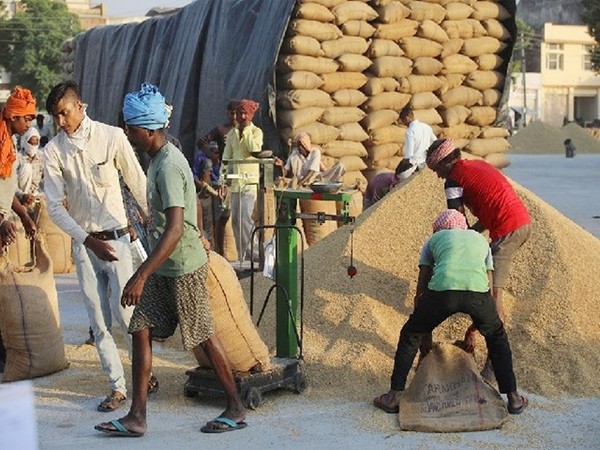
New Delhi: The Indian Cabinet has recently approved the constitution of an Inter-Ministerial Committee (IMC) to facilitate the "world's largest grain storage plan in the cooperative sector".
It will be rolled out as a pilot project to revolutionize agricultural infrastructure and empower farmers. The plan focuses on creating godowns and other agricultural infrastructure at the level of Primary Agricultural Credit Societies (PACS) to strengthen food security, reduce waste, and empower farmers by enabling them to realize better prices for their crops.
At present, India has a foodgrain storage capacity of 145 million metric tonnes (MMT) against a total food production of 311 MMT—leaving a gap of 166 MMT. In the absence of sufficient storage facilities, foodgrains are sometimes stored in the open, which results in damage.
Emphasising the strength of cooperatives, this transformative plan aligns with the vision of “Sahakar-se-Samriddhi” (Cooperation for Prosperity). Leveraging the potential of over 1,00,000 PACS, the plan seeks to create decentralised storage capacity and essential infrastructure to enhance the economic viability of PACS and boost India's agricultural sector.
India has over 1,00,000 PACS with a vast membership of over 13 crore farmers. Given their significant role in the agricultural landscape, the plan seeks to empower PACS by creating decentralised storage capacity and other necessary infrastructure. This transformation will enhance the economic viability of PACS and contribute to the growth of the Indian agricultural sector.
India, the most populous country in the world, accounts for 18 per cent (1.4 billion) of the global population (7.9 billion). However, it accounts for only 11 per cent (160 million hectares) of the arable land (1,380 million hectares) in the world.
Also, India runs the world’s largest food programme under the National Food Security Act, 2013, that covers about 81 crore people. Therefore, to ensure food security of a billion plus population, a robust network of foodgrain storage facilities becomes essential, explained Indian Express.
By implementing a decentralised local storage system, the wastage of food grains can be avoided, strengthening food security and preventing distress sales by farmers. Additionally, this plan will reduce transportation costs and enable better price discovery for farmers.
The pilot projects are underway in 24 PACS across 24 states/UTs, with decentralised storage capacities ranging from 500 MT to 2000 MT. These initiatives will not only bolster food security but also empower farmers and pave the way for a prosperous future in agriculture. Since PACS would be operating as a procurement centre as well as Fair Price Shops (FPS), the cost incurred in transportation would also be saved.